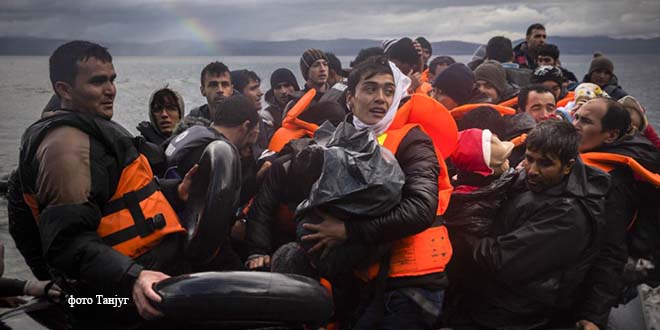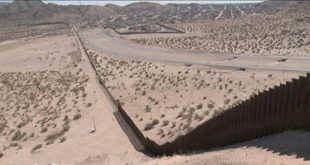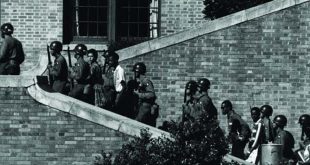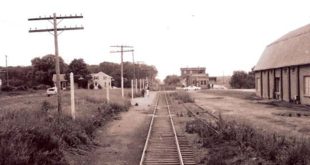Breaking News: Sweden, January 28, 2016 – “80,000 could be expelled after refugee influx. Authorities prepare to deport tens of thousands with failed asylum claims after record 163,000 applications las year”. Al Jazeera
Breaking News: London, January 28, 2016 – “Germany tightens refugee policy as Finland joins Sweden in deportations. Germany will close its border to Algerians, Tunisians and Moroccans … [Finland] to deport around two thirds of 32,000 asylum seekers.” The Guardian
Breaking News: Geneva, January 30, 2016 – “10 Children Among the Dead as a Migrant Boat Capsizes Off Turkey … [a] little boy was among 37 people – most of them believed to be Syrians [Kurds] fleeing war and trying to reach European shores – who died when their boat capsized on Saturday and washed up on the rocky shoals of the Turkish coast.” The New York Times
Breaking News: New York, February 1, 2016 – “A law [has been] approved by Danish legislators [which] allows immigration authorities to seize valuable items, including jewelry and cash [in excess of $1,450] to offset the cost of resettling them.” Editorial, The New York Times
Breaking News: Oslo, February 3, 2016 – On Thursday, more than 70 world leaders are expected to meet in London for a conference aiming to raise $9 billion for Syrians.” The World Post
The US presidential race is on and you keep hearing that America is a country of immigrants. Every presidential candidate is bragging about his/her immigrant grandparents – Cuban maids and bartenders, God fearing Czech postmen and coal miners, Sicilian peasants or in the case of Hilary Clinton just plain common garden variety generic immigrants. But they all talk of immigrations past and not of immigrations present.
The presidential debate is all about America’s domestic immigration problem and ignores the thousands of Syrians, Libyans, Afghanis along with Iraqis, Algerians, Moroccans – it seems the whole world – emigrating – is on the move. It is a crisis that threatens to overwhelm the limited humanitarian resources in conflict zones and countries of ultimate destination – Western Europe. It’s a crisis without a solution that has caught the world’s attention. The stop gap, knee jerk reactions to the crisis – opening up of borders, setting up temporary refugee camps and offering permanent resettlement is now under review.
In the spirit of full disclosure, I was a refugee in 1946 escaping on foot, at night across a shoot-at-sight border from then communist Yugoslavia. Upon reaching freedom my mother’s jewelry and gold coins were seized and confiscated by the British occupying military forces. For a time, I was physically confined [imprisoned] in a refugee camp in Graz, Austria. From 1946 until 1955 I was stateless. I have experienced the life of a refugee. As a result, I am sensitive and highly sympathetic to a refugee’s plight.
All refugees are not alike and all migrants are not refugees deserving safe haven. A refugee escaping from a bloody civil war must be treated differently from a migrant seeking a more comfortable life.
I have no personal knowledge of today’s refugee crisis. I rely on newspapers and television, images and statistics compiled by asylum states, NGO’s and the United Nations. From these I glean that a substantial number are not fleeing persecution or civil war but economic disaster making them, strictly speaking, economic migrants not refugees.
Kosovo, the former Yugoslav Province today is peaceful policed by the United Nations [UNMIK] and the European Union [EULEX]. But the adult unemployment rate is “more than 35% … and the jobless rate among young people is 60%. Nearly 30% of the nation’s 1.8 million people live in poverty.” As a result, in just two months, January and February, 2015, more than 18,000 Kosovars applied for asylum in Hungary alone. Immigrants they may be but refugees they are not.
Last week a well versed columnist wrote that Kurds were fleeing their homeland because “[f]or most people life in Kurdistan is not a life and it is merely an existence in its worse form. There are no jobs, poor health care system, [and] uncertainty of the future.” That holds true for most countries in the region.
The UN Refugee Agency reports that 1,015,000 refugees arrived in Western Europe by sea in 2015. Of these 62% were men between the ages of 18-30, 22% were mostly-late-teenage boys and only 16% were women. “In Sweden … which like Germany has had an open door [policy], 71 percent of all asylum applicants in 2015 were men.”
Statistics bear out that these migrants are predominantly male in their twenties and thirties, reasonably well educated with marketable skills, the backbone of society the foundation of a modern sovereign state, that which makes or breaks a country. What will happen to the countries that they have abandoned?
These migrants are not refugees in the true sense of the word. They have jumped ship, they have abandoned their countries. They have concluded that their countries are not worth fighting for or dying for. If their absence becomes permanent these countries will not recover. They will continue on a downwards spiral until they cease to exist, to be partitioned off among the squabbling tribes of the region.
What can the European asylum countries expect from these new permanent residents? If history is a guide, the new immigrants will not integrate, will not assimilate. They will remain apart from everyday life for “Gastarbeiter” culture is alive and well in today’s Europe. Just witness the thousands that take to the roads every summer travelling back home to Turkey, Bosnia and Greece.
The newly announced policy of asylum for true refugees and not for economic migrants is a just and proper response. The return of economic migrants to the country of origin furthers national rebuilding and ultimate stability of the region.
Raising and spending $9 billion in aid for Syria and spending it in the region will deter unwanted and unsuitable immigration and ultimately save billions of dollars and present civil unrest.
I remember well the memories of my refugee years; I regret not having a solution to the world’s refugee and migrant crisis; I have remorse for the death of all migrants, adults and children alike, wish that I could do more.
Deyan Ranko Brashich, is a contributor writing from New York. He is the author of Letters from America, Contrary Views and Dispatches. His contact and blog “Contrary Views” is at www.deyanbrashich.com
 Печат – Лист слободне Србије Политички недељник, актуелна политичка дешавања, друштво, свет, култура.
Печат – Лист слободне Србије Политички недељник, актуелна политичка дешавања, друштво, свет, култура.







